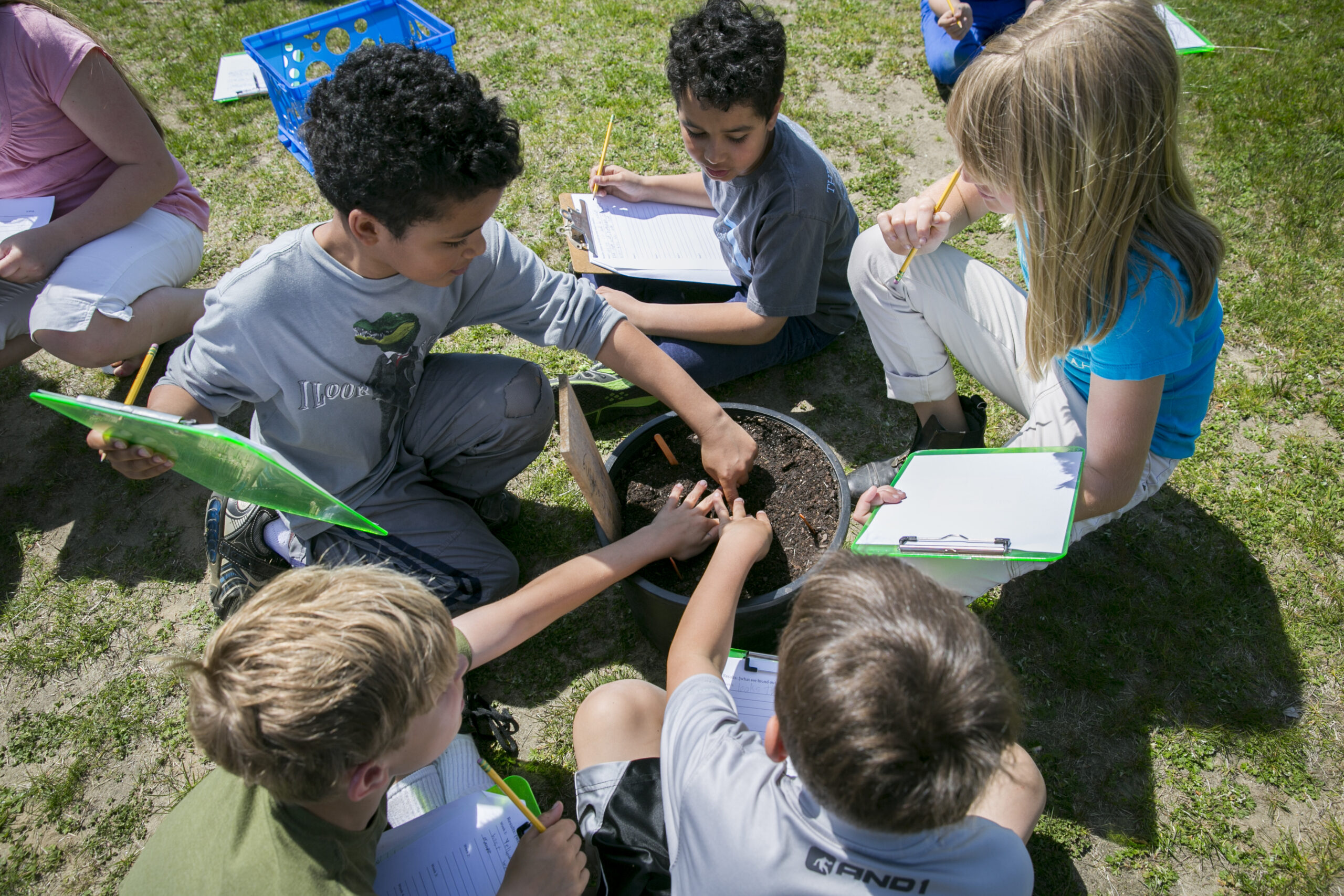
Many policy and programmatic changes will help to expand food system education across the state. In addition, there are many resources available to help districts, schools, and teachers that are interested in teaching food literacy. Using an existing food literacy curriculum may help to design a sequence of food lessons that build over time and that connect to the state standards. In addition, there are many lessons about various food topics that are available for free online. Teachers may learn more about the food system as well as ideas for how to integrate it into their classroom through professional development opportunities. And finally, there are several grants which fund professional development, materials, school gardens, and farm field trips.
These resources are part of the Collaborative’s report on Food Literacy in Massachusetts.
It is often helpful, or even required, for teachers to demonstrate how their lessons align to the state or district standards and frameworks. Several organizations offer resources that demonstrate the connection between food system education and existing standards.
There are many lessons, workshop ideas, and reading lists that may help teachers to teach about food systems. These have not been evaluated and are organized by topic.
There are many professional development options for teachers who are interested in learning more about the food system and how to integrate food system concepts into their classrooms. Here is a list of some food system professional development options.
Exploring Food from the Ground Up, John Stalker Institute
The John Stalker Institute at Framingham State University offers many four-week online graduate courses for educators and school professionals that are focused on promoting school wellness. One such class is “Exploring Food from the Ground Up” which provides participants with examples of schools that are teaching about food, shows them how to connect those lessons to the curriculum, and lists grant opportunities to help support the lessons.
The Massachusetts Farm to School Institute, Mass Farm to School
The Massachusetts Farm to School Institute is a year-long professional learning opportunity for school teams from across the state. During a fall retreat, participants develop a comprehensive school-wide Farm to School Action Plan that includes curriculum, local procurement, utilizing outdoor learning spaces, and cultivating family and community connections.
Backyard Growers
Backyard Growers offers consulting and professional development for teachers that would like to offer more school garden-based education.
Grow Education
Grow Education offers consulting services for new and existing community garden and cross-cultural outreach programs.
Northeast Farm to School Institute, Vermont FEED
Vermont FEED organizes this year-long institute for educators to build relationships, skills, and a collaborative action plan to increase farm to school activities in their classrooms, cafeterias and communities. Participants must apply with a team from their school or district, including classroom teachers, food service staff, and administrators. In person events take place in Shelburne, Vermont. A guide to building a whole school program is here.
Sustainable Schools Project, Shelburne Farms
The Sustainable Schools Project is a whole-school professional learning model designed to help schools use sustainability as an integrating context for curriculum, community partnerships, and campus practices.
Food Education Fellowship, Pilot Light Chef
Pilot Light Chef is a nonprofit based in Chicago. They offer a year-long course for teachers who are interested in using food education as a tool in their classrooms which includes monthly, virtual professional development. They also offer stand-alone professional development opportunities.
Curriculum for Agricultural Science Education
CASE is an initiative of the National Council for Agricultural Education and offers an institute as well as many other courses about teaching agriculture, food, and natural resources.
Grants are available to implement school gardens, purchase other materials for teaching about agriculture and nutrition, and for professional development opportunities.
To read the full report, click here.
For more information, please reach out to Emily Fidanza at [email protected].